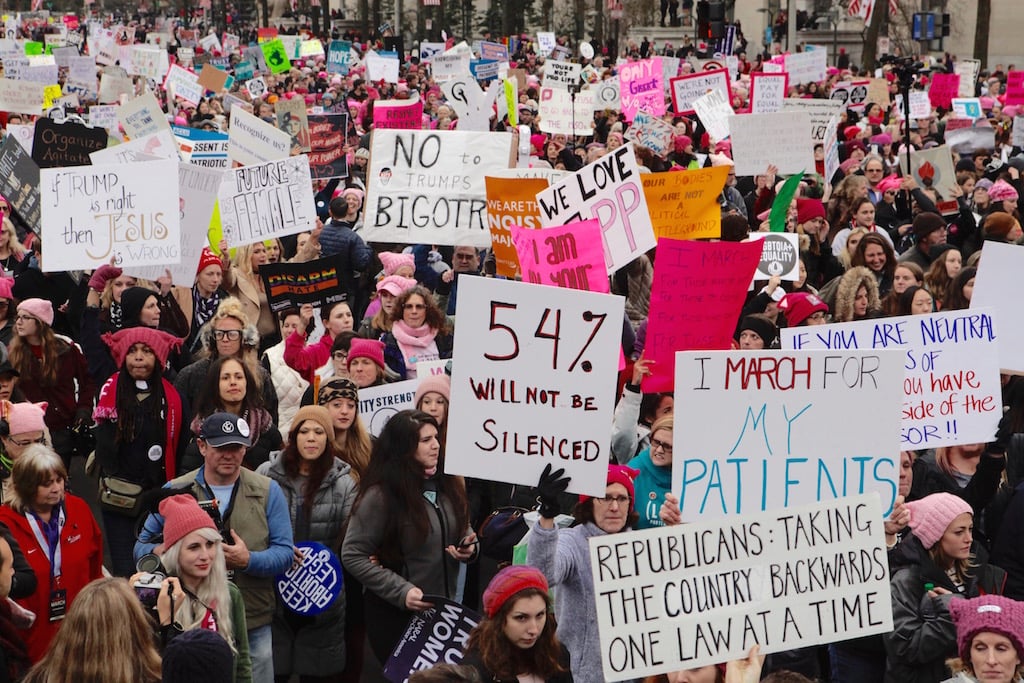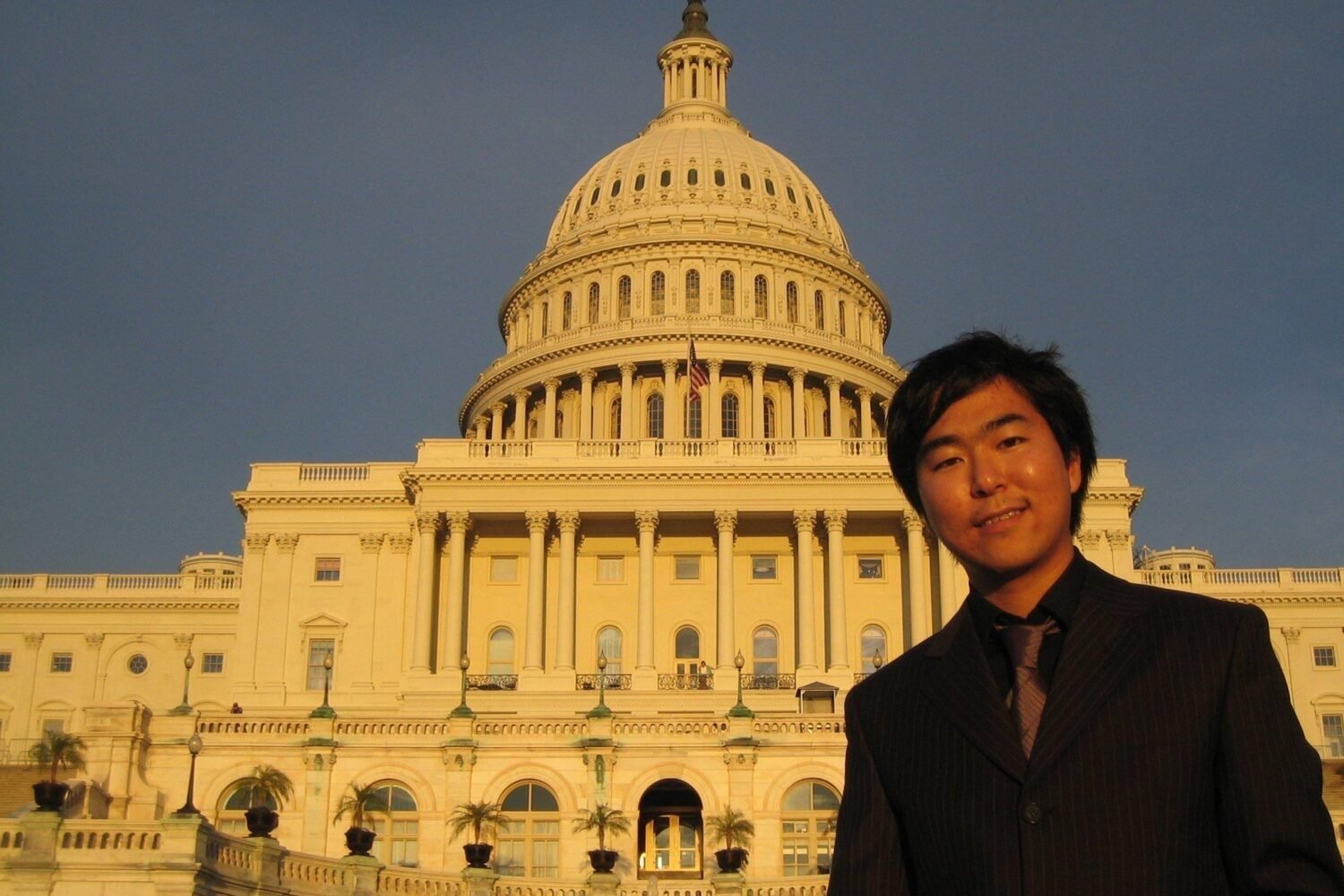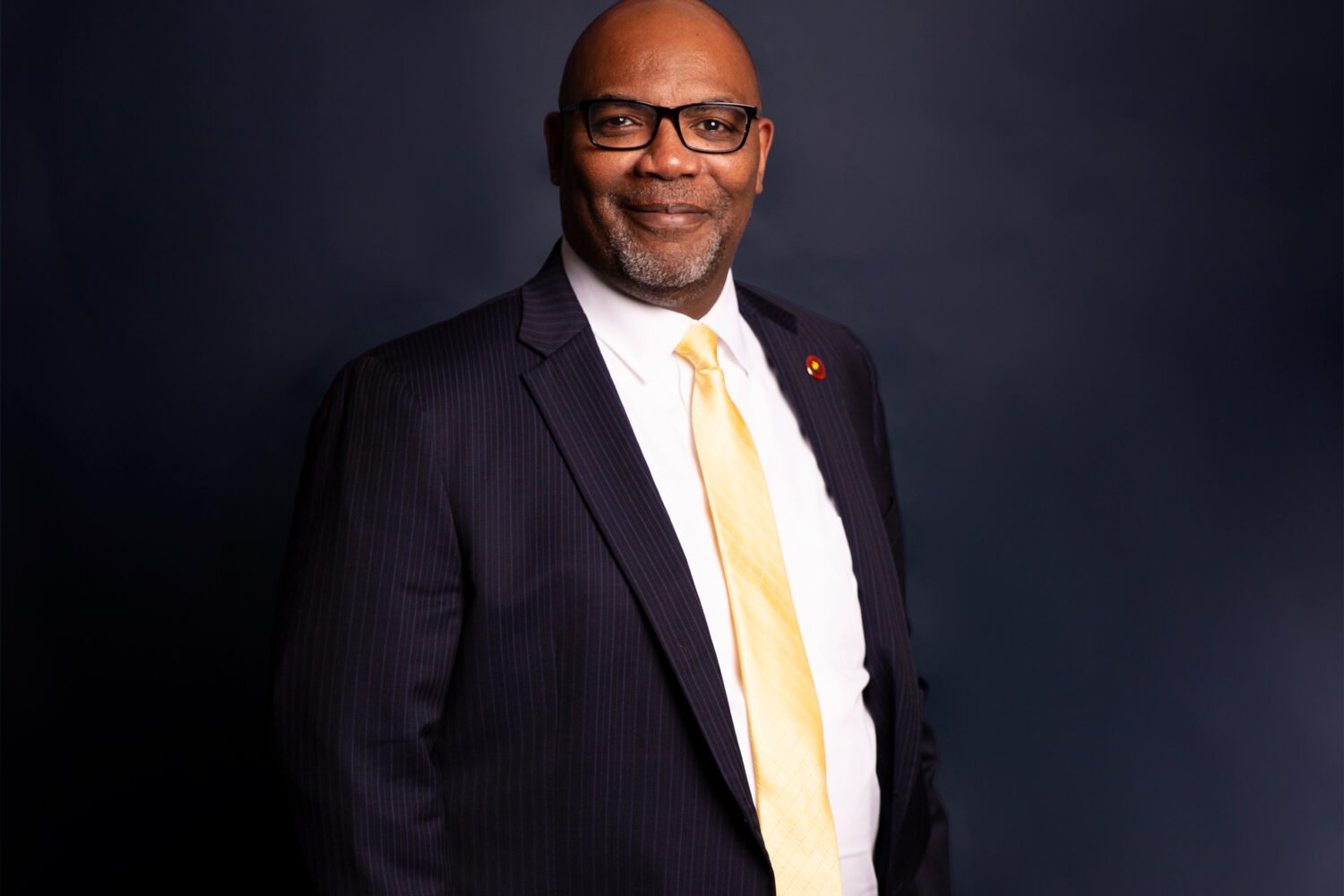Like many of us, Denver Riggleman had a long and sometimes lonely 2020. The Republican congressman from Virginia’s Fifth District lost his seat after being defeated in a primary last June. (His opponent decided to run because he was angry that Riggleman had presided over a same-sex wedding.) He spent the remainder of his term pushing colleagues to disavow the QAnon conspiracy theory and admit that Donald Trump had lost the presidential election—efforts that were about as welcome as you might expect in the party of Trump. Now the co-owner of the Silverback Distillery in Afton, Virginia, is working to combat the spread of disinformation as a top strategist with the Network Contagion Research Institute (which reports on and fights bogus information online), running a consulting business, and mulling a potential run for statewide office.
It’s possible—let’s be honest here—that you associate the name Denver Riggleman with the term “Bigfoot erotica.” During his 2018 congressional campaign, Riggleman was the subject of much mirth due to his long interest in the culture surrounding people who search for the creature. His Democratic opponent got hold of some old Instagram posts of his that showed drawings of extremely well-endowed Bigfoots, and a truly bizarre controversy was born.
Late last year, Riggleman explained himself, somewhat, with a memoir titled Bigfoot . . . It’s Complicated, which lays out his fascination with the subject. (He says he’s personally very skeptical that the creature exists.) If all of this suggests that he’s a kook, think again: Riggleman’s incisive criticisms of the Republican Party are making him a vital voice of the post-Trump era.
Bob Good, who beat you in the primary and now occupies your old House seat, voted against certifying the Electoral College results from six states. He has said mask-wearing is a hoax. What do you think his election says about your district and the GOP in Virginia right now?
I think it says that, right now, to be effective in certain districts in the GOP, you have to communicate at a level that deals in a little bit of crazy.
Do you still feel like there’s any home for you in this Republican Party?
Of course not. It is possible my social libertarian leanings don’t match some of the more conservative and some of the more rural districts.
Republicans haven’t won a statewide race in Virginia since 2009. Do you think any Republican who could win at a convention or a primary could then win the state?
As a Republican right now in Virginia with the baggage that they’re dragging around, it’s very difficult. The Republican Party needs a reboot, or there needs to be a third movement.
I feel like I’ve been hearing about such a mythical third party for most of my life.
It’s really difficult because a lot of people are still pulling the R or D lever without knowing the policies of the people or the belief systems. Most of the Republican candidates are running on “election integrity.” That’s a cover term for Stop the Steal, a direct QAnon-based conspiracy theory.
A good number of Republicans voted for your resolution to condemn QAnon last year. Still, 147 voted against certifying election results. What do you make of that?
If you look at polling across the spectrum, a lot of people are sort of taken aback when they see that 60 to 70 percent of Republicans—and that’s higher with specific Trump voters—believe the election was stolen. I think 27 percent of Republicans believe some of QAnon; 43 percent said they didn’t know. If you put the numbers together, it’s almost exactly the same as the people who believe the election was stolen. Those numbers match. And I’m telling people, listen, this conspiracy-theory nonsense isn’t going away.
This is in a state that just legalized marijuana and outlawed the death penalty. Virginia is turning very blue.
I think I’m the only Republican in Virginia that went all in for marijuana legalization. You put together the same-sex wedding [that I officiated], marijuana legalization, the fact that I voted against the lawsuit to take away preexisting conditions in the ACA—even though I had a very strong conservative voting record, some of those things crossed the Rubicon, right? And that’s why I’m not in Congress today.
I can see how one could make a conservative case for all those positions.
Isn’t it amazing that Republicans talk individual liberty but we don’t want to legalize marijuana? We don’t want to go all in on criminal-justice reform? We believe that we should control who gets married?
We want a party that stays out of our pocketbooks, out of our business, and out of our bedrooms, but the Republican Party is not wired that way right now. Most of it’s wired on a simple belief that there’s an ordained leader, somebody who God put in that place, which is President Trump, and he should be supported regardless of policy positions. I’m not a fan of bullies. I’m certainly not a fan of, I guess, unadulterated boot-licking.
What do you think of the way House minority leader Kevin McCarthy has tried to handle his job since Trump lost?
I know Kevin; we are very friendly. Kevin McCarthy’s job is to protect the rest of the conference, and if you don’t have the moral high ground, you can get lost pretty quickly. That means you have to have some kind of courage where you step up and say, “We can’t go in this direction.” I wouldn’t have done very well if I was still [in Congress], because I would have accepted the electors. I would have voted for impeachment. I’d probably be losing the next cycle anyway.
As Democrats passed a huge spending bill this year, McCarthy was reading from Dr. Seuss on Twitter.
I was stunned by that. Politics has gone to seeing who can do the most, I guess, “owning” tweet.
What do you think about banning people who spread disinformation from social media, whether it’s QAnon, election lies, or claims that Bill Gates is using vaccines to control the population?
You’re going to have to forgive my intelligence background: I think deplatforming too many people is actually very harmful, because it takes away the ability to identify people. We were warning people up to the [January 6 Capitol riot] that there’s really bad indicators out there. But when you deplatform that many people, they start to migrate to other areas on the internet or other areas to communicate.
Do you see a way out of this political situation? Or are we just hosed?
Well, I don’t know if we’re hosed. I think we’re hosed if we continue down this path of a two-party system that can’t come together over facts. Listen, I’m one guy out of 350 million in the United States. But it’s people like me—who really hate politics and who know how it works—that need to get into it.
Would you think about running for a statewide office, or even another national office?
If I ran again, it’d be very difficult to have an R or D behind my name. If I ran again, it would be statewide. But I would have to be able to raise the money. I’d have to have people who weren’t afraid to do battle.
In your recent Bigfoot book, you write about people who have embraced what are essentially conspiracy theories as a way to explain their world. How has that research informed your thinking about QAnon and other ills in society right now?
As I talked to these [Bigfoot believers] and went on these [search] expeditions, I said, My God, this is a complete religion/belief system based on a big hairy creature. And this is so applicable to what’s happening with conspiracy theories, or belief systems that are nonsensical, like QAnon believing that there’s a Democratic cabal of Satan worshippers that harvest children for adrenochrome or that the NSA changed the election tallies or that white vans burned ballots. QAnon folks are just a weaponized version of Bigfoot believers. Though I don’t think you’re going to have Bigfoot believers storming the Capitol.



















